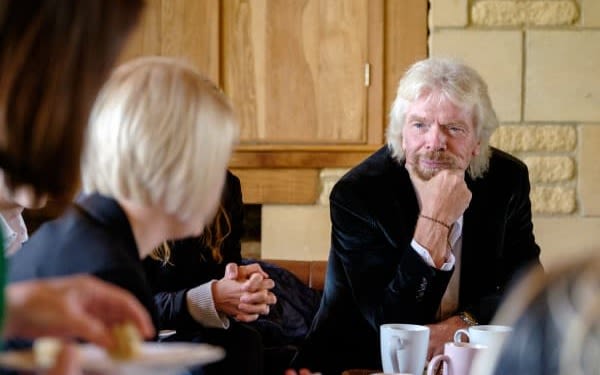The psychology of leadership
The concept of good leadership sounds very simple, but the real story is that being an effective and true leader is hugely complex – and this complexity gives us a fantastic array of people that we can call ‘leaders’.
Today’s good leaders are expected to be agile, flexible, ROI-driven, socially-aware and relationship-oriented, open-minded and supportive collaborators actively seeking outteam member's different perspectives and breaking down traditional non-functioning barriers in order to achieve exceptional results.
Whether this is Richard Branson, Elon Musk, Sir Alex Ferguson, the captain of the local rugby team or a teenager with the right stuff, leaders come in different forms.
If we accept the need for flexible, agile and relationship-driven leadership, then it is important to develop a good leadership model that nurtures such people – regardless of where they are in the organisation.
Over the last 10 years or so, I have been delivering various flavours of leadership development ranging from one to one mentoring through to fuller blended programs. What I have seen over time is the growing importance and relevance of the integrated psychology of leadership.
Essentially, the ‘hard’ leadership skills (business knowledge, technical know-how) in themselves are not strong enough to make a great leader and it is necessary to get into the values, beliefs and psychology of the person to understand why certain behaviours manifest themselves.
Let's be honest, we see a lot of 'leaders' who are actually managers in the wrong place at the wrong time – and (usually unsupported and left to their own devices by the people who have put them into this post), they struggle.
The point is this: the modern leader has modern issues that some of the established leadership theories (whilst having some validity) do not address:
Traits theory (originally mooted in the 19th century) suggested that good leaders are born and not made
Behavioral styles theory (first mentioned in the 1960s) used a managerial grid model that assumes a slower world pace – it may not be suited to 21st century organisations as other more flexible approaches
The majority of situational and contingency theories assume that leaders can simply flick a switch and adopt different behaviours
Functional theories (e.g. Action-Centred Leadership) assume that the leader applies leadership behaviour as needed, regardless of their personality
When you consider some of the leaders mentioned above, we think of their personality too – we don’t necessarily say that Richard Branson is brilliant at reading a balance sheet, but we DO refer to charisma, self-publicity, and friendliness. The psychology of the leader determines the actions of the leader (which, in large part, informs the success of the leader).
I’m not suggesting that we dismiss all previous leadership theories – the great thing is that we can pick-and-choose the best bits (the bits that work for us at any particular time) in order to develop a model that suits the organisation.
This led me to build the Integrated Psychology of Leadership model (IPoL) - a blended approach that flexes with the corporate and leadership need.
Being prescriptive and suggesting that one-size-fits-all is inappropriate and I would advise any leader who is self-aware enough to recognise the need for continuous professional development to work with someone with the ability to build a solution for them.
Here are a few things leaders can do to develop:
Social emotional learning – with emotional intelligence as a foundation, the 15 aspects of social emotional learning can be applied in the workplace – how to be better leaders and collaborators
Talking therapy – working with different talking therapies as a way to understand yourself, your colleagues and team members – breaking down resistance to change by appreciating how negative perceptions and thoughts impact your effectiveness in the workplace;
Performance coaching – when you have explored your past and identified your thoughts and behaviours in the present day, it is time to plan for the future – how to achieve positive and empowering visions
Reflection – reflective thinking is often overlooked but is an essential part of leadership - take the time and space to look at how you have felt, thought and acted - and how this will inform your next move
Collaborative Intelligence (CQ) – the 15 elements of collaboration that ensure productive co-working
In my experience, a strong leader should be able to not only encourage the leaders of tomorrow but consistently build the capabilities of the leaders of today – and the people supporting them should be just as able.
This is a guest blog and may not represent the views of Virgin.com. Please see virgin.com/terms for more details.

